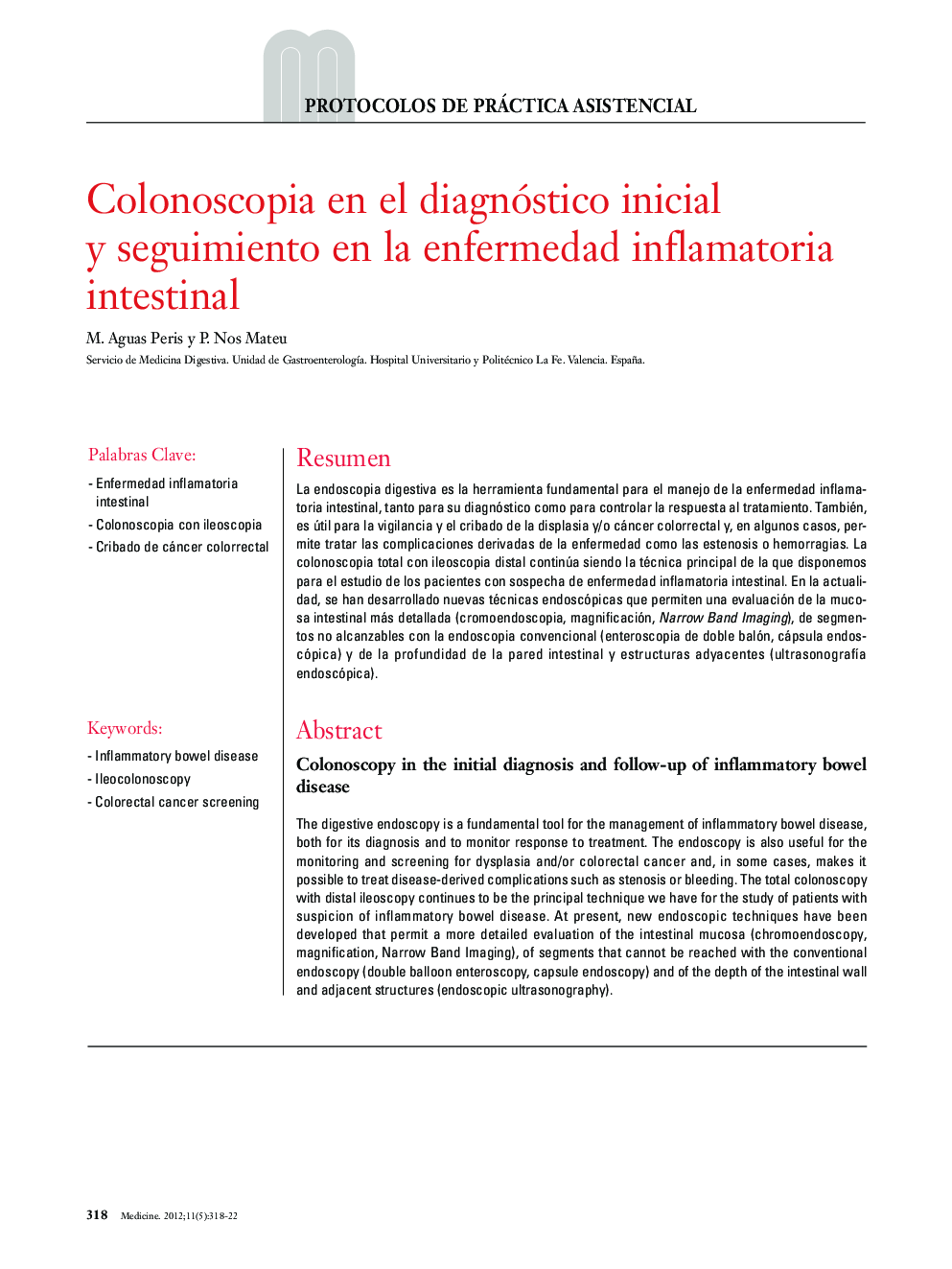| Article ID | Journal | Published Year | Pages | File Type |
|---|---|---|---|---|
| 3806115 | Medicine - Programa de Formación Médica Continuada Acreditado | 2012 | 5 Pages |
Abstract
The digestive endoscopy is a fundamental tool for the management of inflammatory bowel disease, both for its diagnosis and to monitor response to treatment. The endoscopy is also useful for the monitoring and screening for dysplasia and/or colorectal cancer and, in some cases, makes it possible to treat disease-derived complications such as stenosis or bleeding. The total colonoscopy with distal ileoscopy continues to be the principal technique we have for the study of patients with suspicion of inflammatory bowel disease. At present, new endoscopic techniques have been developed that permit a more detailed evaluation of the intestinal mucosa (chromoendoscopy, magnification, Narrow Band Imaging), of segments that cannot be reached with the conventional endoscopy (double balloon enteroscopy, capsule endoscopy) and of the depth of the intestinal wall and adjacent structures (endoscopic ultrasonography).
Keywords
Related Topics
Health Sciences
Medicine and Dentistry
Medicine and Dentistry (General)
Authors
M. Aguas Peris, P. Nos Mateu,
